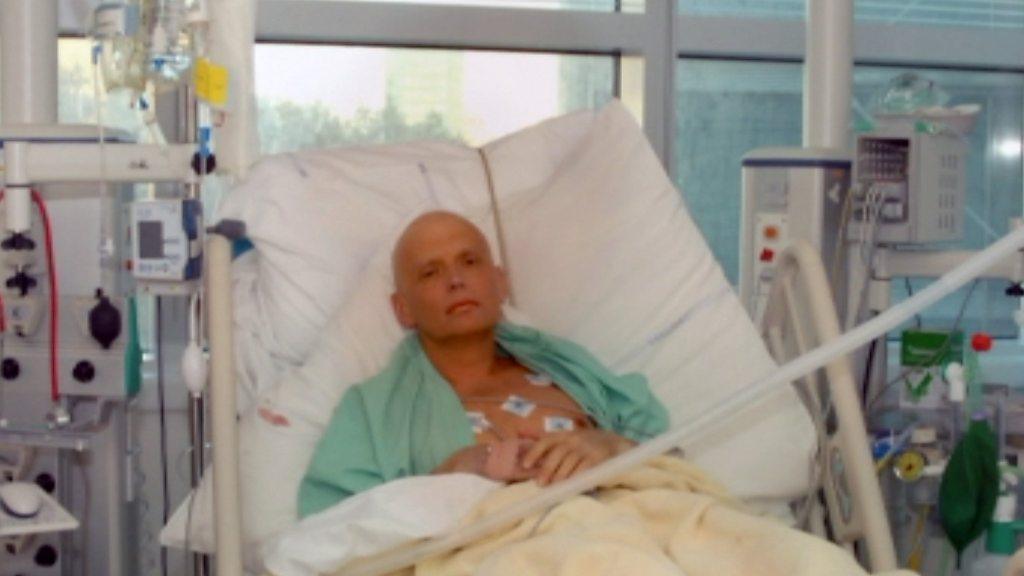Russia spy poisoning: Czechs angrily reject Russia claims
- Published
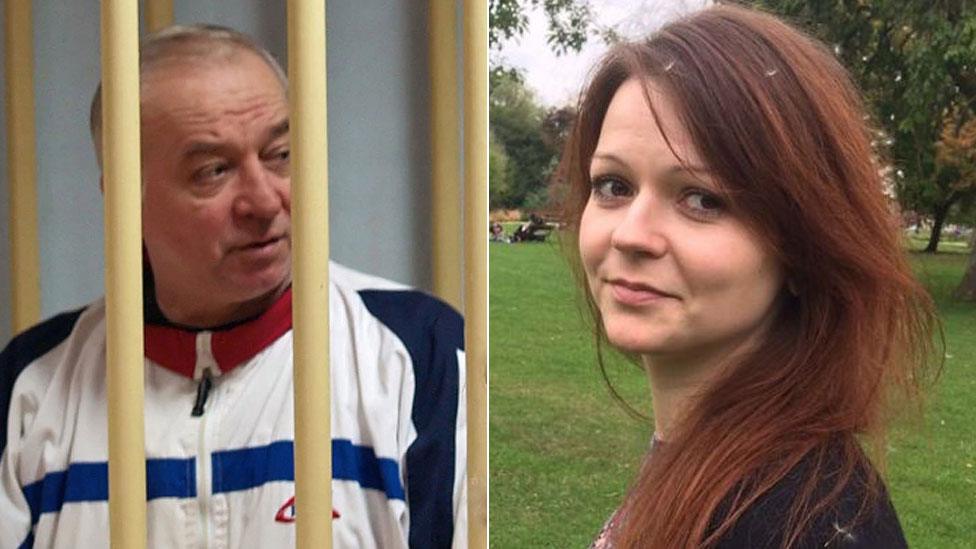
Sergei Skripal, 66, and his daughter Yulia, 33, are in a critical condition in hospital
The Czech Republic has rejected Russian claims that it was one of four countries most likely to have manufactured the nerve agent used to poison Sergei Skripal and his daughter.
Czech Foreign Minister Martin Stropnicky said this was "wholly unsubstantiated" and "highly speculative".
The ex-spy and his daughter Yulia remain critically ill in hospital.
They were found unconscious on a bench in southern England on 4 March.
The UK government says they were poisoned with a nerve agent of a type developed by Russia called Novichok.
The Russian government denies any involvement in the attack.
Mr Stropnicky was responding to claims made by Russian foreign ministry spokeswoman Maria Zakharova.
She had said the Czech Republic, Slovakia, the UK and Sweden were most likely to have produced Novichok, the nerve agent identified in the Skripal case - and which the UK government says originated in Russia.
They were the ones carrying out "intense research" on the substances from the late 1990s until now, she alleged.
Mr Stropnicky tweeted: "We must protest at the claims of the origins of Novichok, which are wholly unsubstantiated.
"This is a classic way of manipulating information in the public space; releasing a highly speculative claim with no proof whatsoever.
"This information already appeared several days ago on the disinformation website Sputnik."
Meanwhile, Russia is to expel 23 British diplomats as the row over the attack on the Skripals continues.
The Russian foreign ministry said the UK staff would be expelled from Moscow within a week in response to Britain's decision to expel 23 Russian diplomats.
It also said it would close the British Council in Russia, which promotes cultural ties between the nations, and the British Consulate in St Petersburg.
The BBC's Gordon Corera considers how likely is it Russia poisoned Sergei Skripal and his daughter
- Published2 September 2020
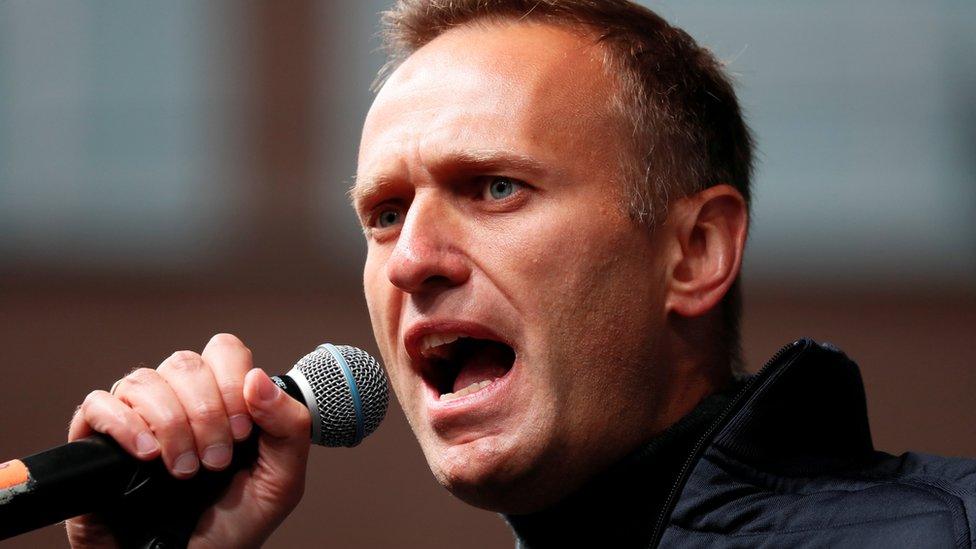
- Published17 March 2018
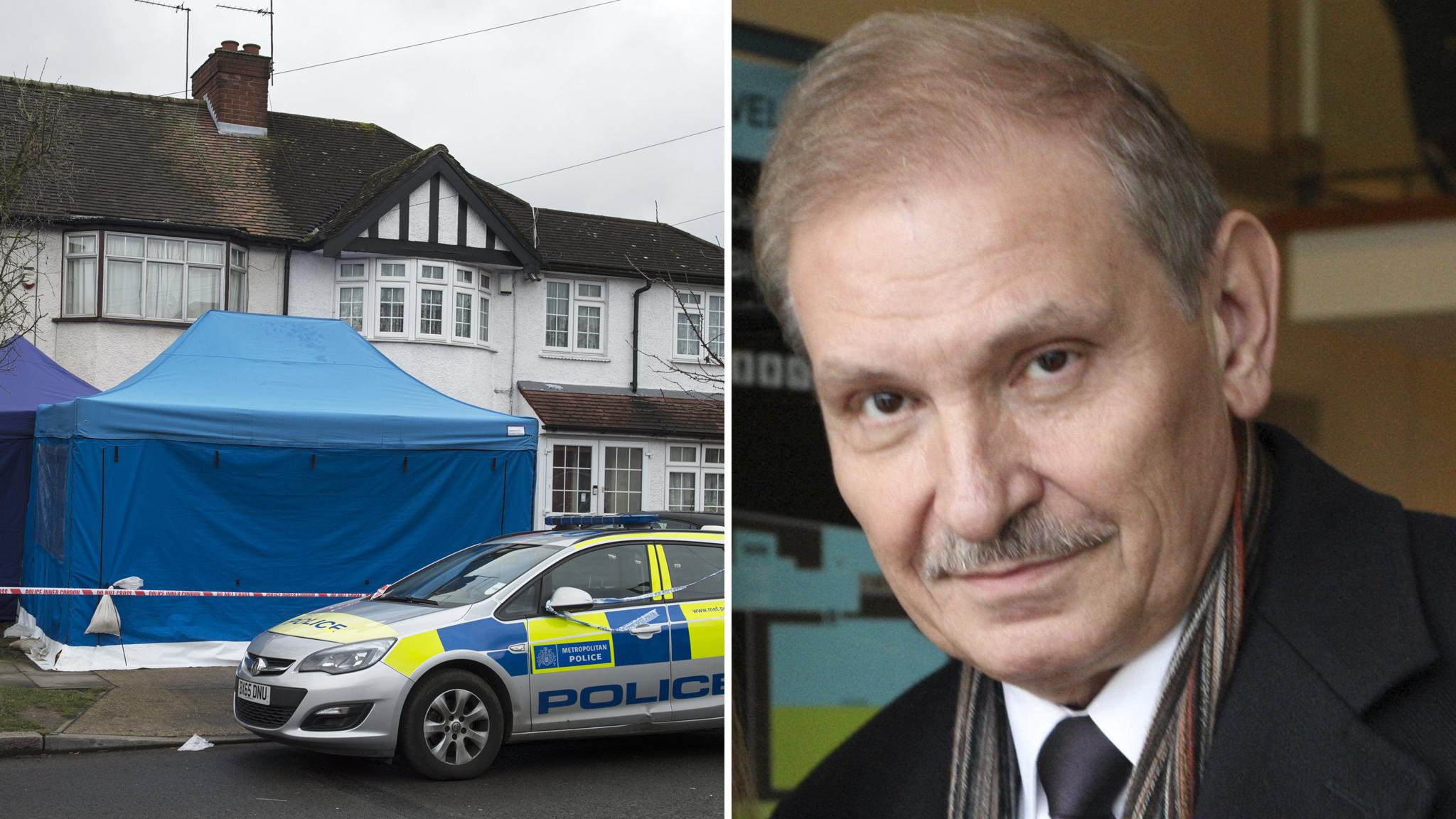
- Published8 October 2018
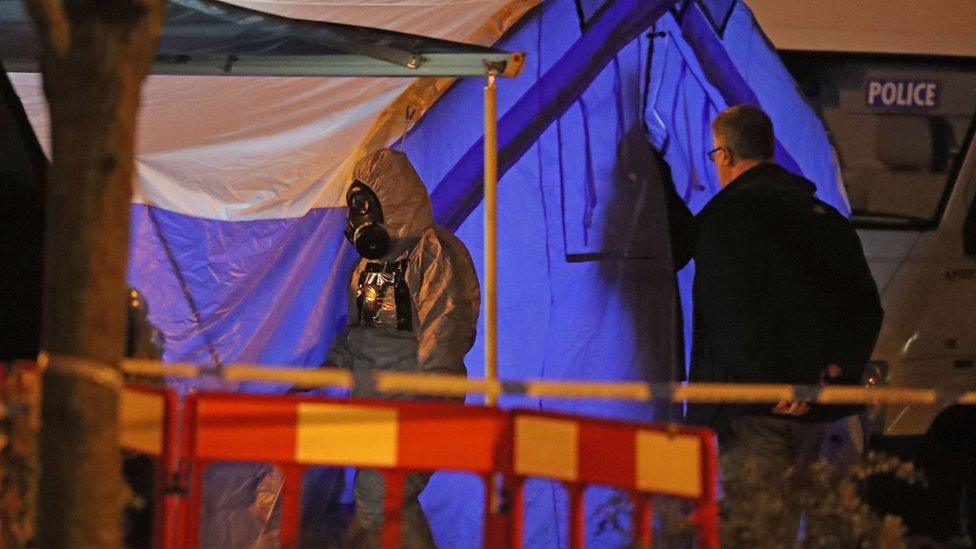
- Published17 March 2018
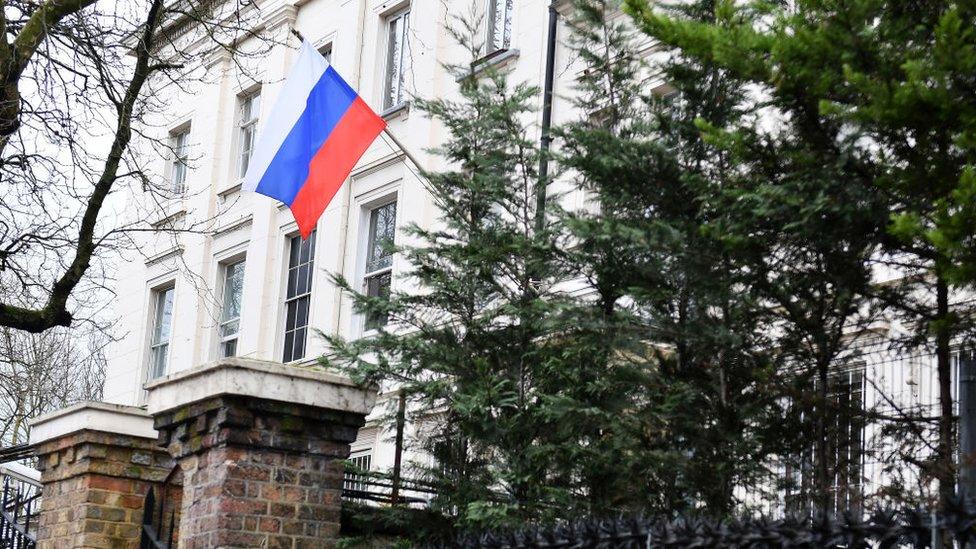
- Published8 March 2018
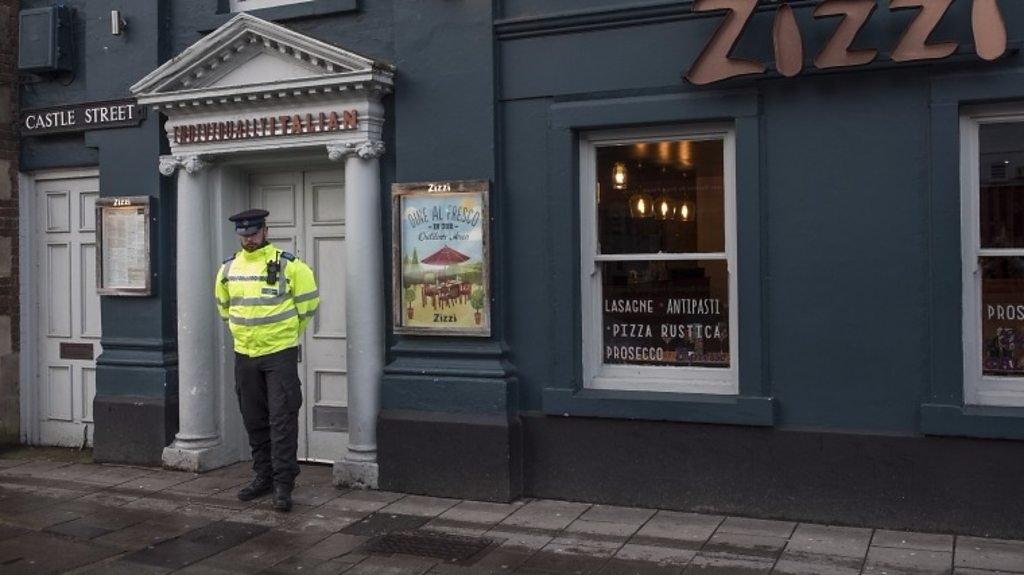
- Published7 March 2018
